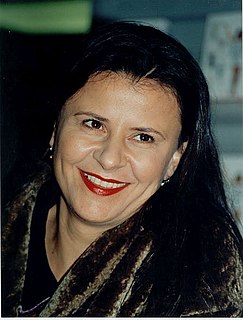A Quote by Tracey Ullman
The working classes in England were always sentimental, and the Irish and Scots and Welsh. The upper-class English are the stiff-upper-lipped ones. And the middle class. They're the ones who are crippled emotionally because they can't move up, and they're desperate not to move down.
Related Quotes
If you were a successful upper-middle-class Negro girl in the 1950s and '60s, you were, in practice and imagination, a white Protestant upper middle-class girl. Young, good-looking white women were the most desirable creatures in the world. It was hard not to want to imitate them; it was highly toxic, too, as we would learn.


































